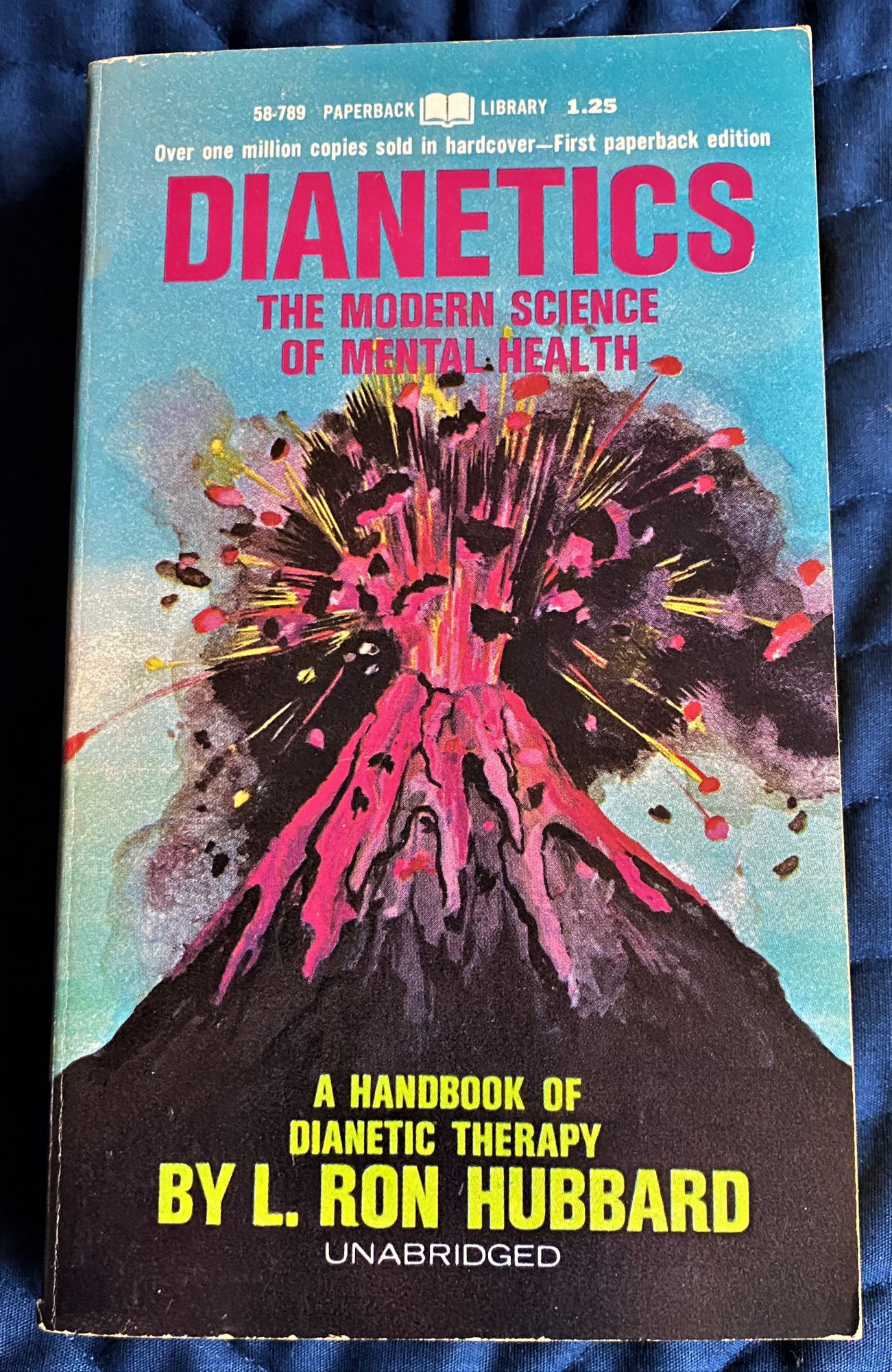A Biased View of Dianetics
A Biased View of Dianetics
Blog Article
The 8-Second Trick For Dianetics
Table of ContentsSome Ideas on Dianetics You Should Know4 Easy Facts About Dianetics DescribedThe Buzz on Dianetics5 Simple Techniques For Dianetics
I could not ever not wish to receive anything that enters your mind for you- if it was or else, I would not be sitting here with you, doing this. I not only could never have a problem, or otherwise want to listen to something that comes to mind for you, however I'm entirely eager to understand every idea, every idea, every picture or feeling that emerges or shows up for you- do not ever before think otherwise, and if somehow you do, please simply allow me understand! Often, you might have an idea, and picture, idea or event appear that does not seem to address the question, or connect to it, but nonetheless, always do tell me about it, and as we continue, the relevance will arise for you.This is intrinsic in the basis of processing, and the topic of this conversation: the basic duties of the therapist and the customer: The standard duty of the therapist is, unlike "conventional training", not to regulate, which suggests to implement and/or inhibit, yet to instead function from the basis of EMPOWERING THE CLIENT.

The Only Guide for Dianetics
John Mcmasters revealed this standard reality wonderfully well in among his talks on Power handling, where he describes just how he was asked what this "unique flair" was that he had for offering such great sessions; he needed to think of that for a minute, and identified that it was what he wasn't doing, in addition to what he was doing: he had not been examining, judging, computer, or in fact, generating any type of ideas, allow alone spoken expressions, after providing the command and while waiting for the computer to complete their answer to their satisfaction; he was, simply and only, being existing with the PC, and totally interested.
The duty of the counselor, demonstrated; that was his "special propensity". I have had my own experience which taught me this well, extremely early in the video game. In 1982, having actually just recently completed my training and teaching fellowship on New Era Dianetics, I was running this on a PC, and there was a point in the session where (being a bit damp behind the ears not yet having several hours under my belt as a specialist auditor) the computer seemed to be "taking also long" to express anything verbally after I offered him a command.
This trick ended up being one of the most valuable contribution that John ever before made to the you can try these out subject of therapy or bookkeeping (Dianetics). In my modest opinion, it is the biggest payment that any person has actually ever made to these subjectsthe application is completely non-judgemental, non-evaluative, and without any tip, recommendations or opinion.no preconceived agenda for people, or 'degrees' that they should do
In Scientology we prided ourselves on not evaluating for individuals. All that really implied was that the auditor did not Vocally evaluate for the PC in session.
A Biased View of Dianetics

Any person that had actually ever before seen John audit can not assist but discover an unique high quality in his auditing."The customer's basic function is to be there with the purpose of relocating in the direction of their spiritual goals, and to easily and totally reveal and experience whatever shows up for them in responding to the questions and implementing the guidelines in the processing.
This is something to process as needed. But additionally, individuals often have previous experience and/or brainwashing in auditing/processing which, in some ways, and to some levels, really misdirects them into perspectives, ideas and habits patterns that prevent the complete realization of these duties, therefore they will often tend to hinder the expressing of what comes to mind, as in the examples given above. * The initial, and this page maybe leading instances of mis-indoctrination leading to less than totally smooth and reliable sessions, can be found in specific aspects of the training regimens, or "TR's":"TR's" are usually an individual's initial, or at least early, experience in Scientology, and while I will check out this site certainly go on to explain what I view as the problems in idea and method, nonetheless, have a tendency to be considerably healing, done as they are given (Hubbard firmly insists that "TR's are not processing, they are educating", however factually, they are both processing AND training)
Alan Walter made comparable observations, and improved these with his "Existence Processes". There is no "failing", and no denial of the fact of this being handling. The emphasis, as it needs to be, gets on experiencing the various other person's visibility. All the symptoms which get a "fail" in doing "TR-0" are merely the being's efforts to withstand the other person's presence, and instead of being bugged and badgered with "Flunk", which enforces "failing!" on the being, one simply requires to be urged to "stick their feet in the water a little much deeper", to increasingly restore their capability and readiness to fully share and experience "being below", or "presence", with others.
An Unbiased View of Dianetics

Report this page